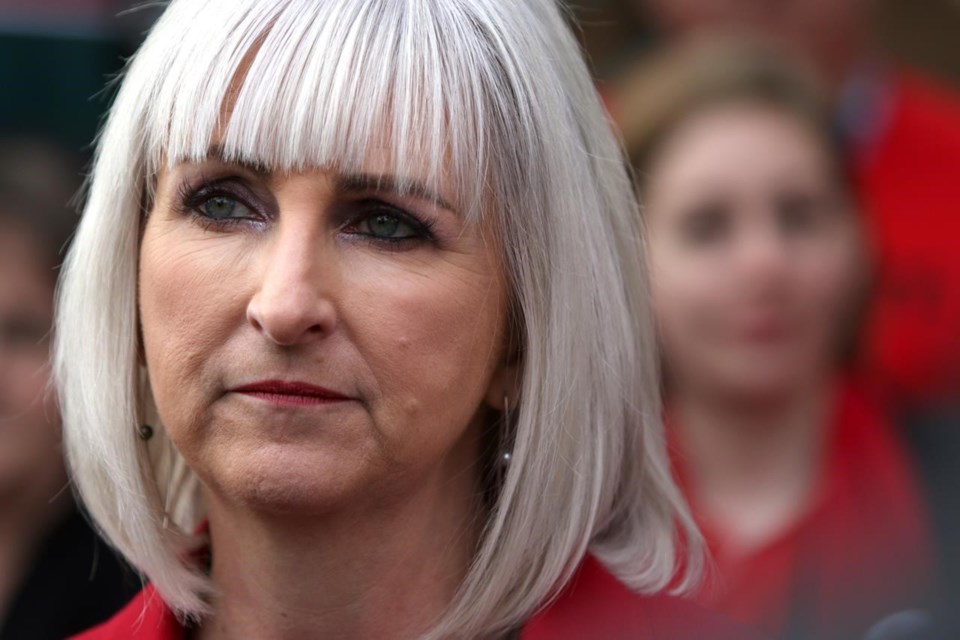VANCOUVER — Parents and educators are anxious about no longer receiving notices about COVID-19 exposure in schools even as the number of overall cases in the province is expected to rise this fall, the head of the B.C. Teachers Federation said Monday.
Teri Mooring said previous notices weren't perfect because they didn't state how many cases of the virus were circulating, but at least they provided some indication about what was happening in schools.
Provincial health officer Dr. Bonnie Henry has said the notices created anxiety for parents, but Mooring said not having that information is causing more stress.
"I think the rationale about exposure notifications is a little bit insulting, in that they just created anxiety," she said, adding a large number of the notices in Surrey, for example, highlighted that school district as a COVID-19 hot spot last year, prompting many teachers to quickly get vaccinated.
Mooring said that while notices will only be issued to those who are directly impacted, others would also now be concerned about potential exposure to the highly transmissible Delta variant, which wasn't dominant during the last school year.
She called for reliable data on exposure and case numbers in schools to be publicly available on the B.C. Centre for Disease Control website, the same as how case counts in all health regions are reported.
The absence of reliable data will only lead others to try and compile their own information, Mooring said.
Kathy Marliss, who created an online "COVID tracker" page last year and still runs it based on exposure and case information submitted by teachers, parents and administrators, said she'd love to be "out of business" if the government posted the necessary data to keep everyone informed.
She said parents were anxious last year because information in the notices was so vague, creating concerns that outbreaks at schools weren't being declared.
"That struck me as problematic because I have a high-risk household and a daughter who would be anxious," Marliss said about her Grade 11 student.
"I felt like if they're not going to provide the information then we're going to find another way to do that," she said, noting parents are already concerned at the start of the school year given rising case counts.
Henry recently presented modelling data showing new COVID-19 cases could exceed 1,000 a day by the end of the month and that high vaccination rates in the community would help protect students.
Sabrina Bharaj, whose children are in kindergarten, Grade 5 and Grade 7, said she's worried about the high number of unvaccinated people based on thousands of anti-vaccination protesters who showed up outside Vancouver General Hospital and other health-care facilities around the province last week.
"It's terrifying," she said, adding the lack of exposure notices and lack of a mask mandate for kindergarten-to-Grade 3 students don't help.
Bharaj said her kids learned remotely at home last year because her mother is immunocompromised and stayed with the family after having surgery, but her older children in particular are nervous about returning to class because of rising COVID-19 cases.
Some students are having to navigate friendships based on whether their peers' families have been vaccinated, and that's adding more discomfort before the return to school on Tuesday, Bharaj said.
"My eldest is double dosed," she said of her daughter. "That eases her nerves a little bit knowing that she has that layer of protection. But she's still quite nervous because she knows that there are kids in her class that didn't get the vaccine and whose parents are anti-vaxxers."
This report by The Canadian Press was first published Sept. 6, 2021.
Camille Bains, The Canadian Press



